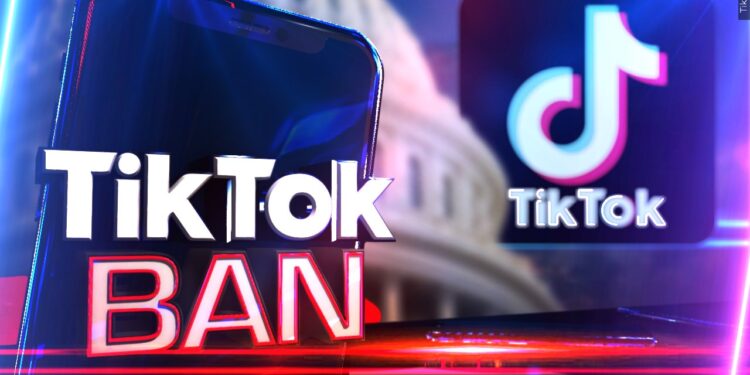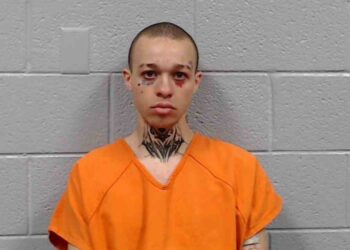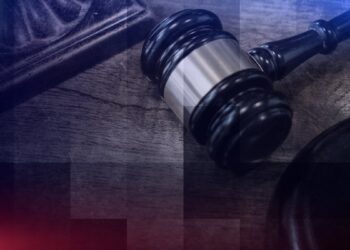(LOOTPRESS) – On Friday, the Supreme Court heard oral arguments in a pivotal case that could determine the future of TikTok in the United States. The case centers on the constitutionality of the Protecting Americans from Foreign Adversary Controlled Applications Act, a law targeting TikTok and its ties to China-based ByteDance. If upheld, the law would effectively ban the app, which boasts around 115 million U.S. monthly active users, starting January 19.
The justices grappled with whether the law violates the First Amendment’s protections on free speech, while also considering national security concerns cited by the U.S. government. The hearing highlighted the tension between free expression and fears of foreign influence.
National Security vs. Free Speech
U.S. Solicitor General Elizabeth Prelogar defended the law, arguing that TikTok’s ownership by ByteDance poses a national security threat. She claimed that the Chinese government could exploit TikTok to weaken U.S. interests by accessing user data or manipulating content.
“Americans using TikTok may believe they are speaking to one another,” Prelogar said. “But in reality, the PRC, a foreign adversary nation, is instead exploiting a vulnerability in the system.”
The justices pressed Prelogar on how TikTok differs from other foreign-owned media outlets like Politico or the Oxford University Press. Prelogar maintained that TikTok’s potential for misuse as a communications tool by an adversary sets it apart.
“What we’re trying to prevent is not the specific subject matter or viewpoints, but the technical capability of a foreign adversary nation to use a communications channel,” she said.
TikTok’s Defense
TikTok’s legal team, led by former U.S. Solicitor General Noel Francisco, argued that banning the app would infringe on the free speech rights of millions of American users. Francisco denied that TikTok’s ownership structure gives the Chinese government control over the platform.
“We absolutely resist any kind of content manipulation by China at all,” Francisco said. However, his careful wording, using “resist” rather than “reject,” drew scrutiny from both the justices and court observers.
Francisco emphasized that the law unfairly targets TikTok without clear evidence of harm, calling it an overreach that undermines constitutional protections.
O’Melveny & Myers special counsel Jeffrey Fisher, representing TikTok content creators, echoed these concerns, urging the court to look beyond vague national security claims. “The government doesn’t get to simply say ‘national security’ and end the case,” Fisher said.
Potential Impacts on TikTok Users
If the law takes effect on January 19, TikTok could face a nationwide ban unless ByteDance divests its ownership to an American company. Users who already have the app installed may still be able to post or engage with content, but updates and new downloads would likely be blocked.
The ban could significantly impact thousands of creators who rely on TikTok for income through ad revenue, partnerships, and merchandise sales. Many would need to pivot to other platforms like Instagram or YouTube to maintain their livelihoods.
“Shutting down TikTok, even temporarily, would be a major disruption,” said George Wang, staff attorney at the Knight First Amendment Institute. “It sets a dangerous precedent for regulating speech online.”
Uncertainty Under a Trump Administration
Adding complexity to the case is President-elect Donald Trump’s position on enforcing the law. The deadline for TikTok divestiture is January 19, just one day before Trump’s inauguration. While the incoming administration could decline to enforce the law, Prelogar called this a “tricky question,” noting that the government has not yet taken a position.
This uncertainty has left third-party platforms like Apple and Google in a difficult position, as they must decide whether to comply with the law or trust assurances from the Trump administration.
Broader Implications
The case has drawn significant attention due to its potential to set far-reaching legal precedents. Erwin Chemerinsky, dean of Berkeley Law, said the case represents a “tension between free speech and national security.”
“It’s unprecedented for the government to prohibit platforms for speech, especially one so widely used,” Chemerinsky said. “This could have enormous implications for how we regulate digital platforms in the future.”
While the Supreme Court has not indicated when it will issue a ruling, the case’s expedited schedule suggests a decision could come soon. The outcome will determine not only TikTok’s fate but also the balance of government power in regulating online speech in the name of national security.









